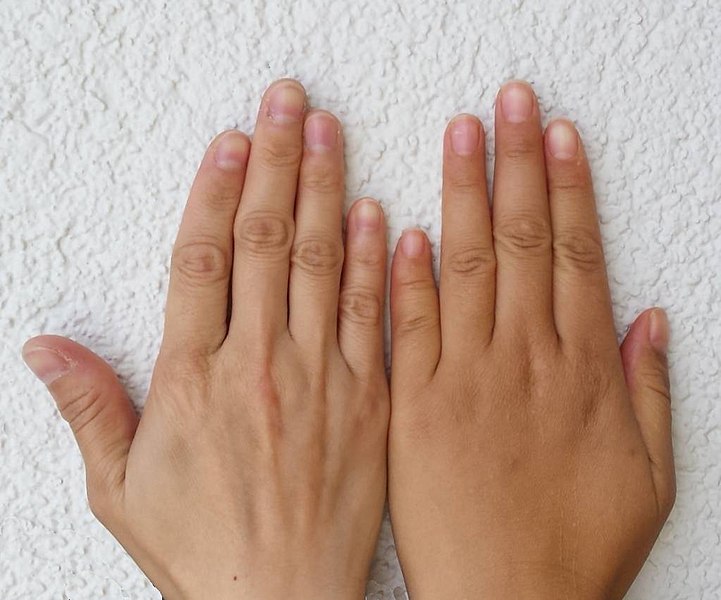Due to the change in climate as well as other environmental factors, cancer is one of the causes of death for many individuals, one of them being in the lungs. These three clues that can be spotted in the hands may be clues to symptoms of lung cancer.
Express reports that around 47,000 people in the United Kingdom are diagnosed with lung cancer every year. One in 13 men and one in 15 women most likely suffer from the disease. While there are obvious symptoms such as coughing, blood in the phlegm, unusual weight loss, there are more subtle symptoms, and these can be found in the hands.
For starters, a person with lung cancer may see a change in their hands. Clubbing of the hands is a sign of possible lung cancer in a person. Specifically changes in the person’s nails and fingers and is also known as Hippocratic clubbing. It usually occurs in more than three people out of 10 who have non-small cell lung cancer and in only four people out of 100 with small-cell lung cancer.
Another sign of finger clubbing is the softening of the base of the nail, and the skin next to the nail bed becomes shiny. The second clue is the nails curving more than usual when looked at from the side. This particular sign is also referred to as Scarmouth’s sign.
The third clue in the hands is the ends of the fingers becoming larger in appearance. This is sometimes referred to as drumstick fingers.
People aged 40 and above are the ones mainly affected by lung cancer in the United Kingdom. More than four people out of 10 who suffer from lung cancer are aged 75 and above. The exception of which are smokers, who have a higher risk of suffering from this disease regardless of age, making up 72 percent of lung cancer cases. Non-smokers are also susceptible to lung cancer due to secondhand smoke, but not as much as smokers.
In case you or someone you know may have these symptoms, it is best to consult a doctor right away to get a proper diagnosis.



 Vanda Pharmaceuticals Wins FDA Approval for New Motion Sickness Drug After Four Decades
Vanda Pharmaceuticals Wins FDA Approval for New Motion Sickness Drug After Four Decades  California Jury Awards $40 Million in Johnson & Johnson Talc Cancer Lawsuit
California Jury Awards $40 Million in Johnson & Johnson Talc Cancer Lawsuit  Sanofi to Acquire Dynavax in $2.2 Billion Deal to Strengthen Vaccine Portfolio
Sanofi to Acquire Dynavax in $2.2 Billion Deal to Strengthen Vaccine Portfolio  Sanofi Gains China Approval for Myqorzo and Redemplo, Strengthening Rare Disease Portfolio
Sanofi Gains China Approval for Myqorzo and Redemplo, Strengthening Rare Disease Portfolio  RFK Jr. Overhauls Federal Autism Panel, Sparking Medical Community Backlash
RFK Jr. Overhauls Federal Autism Panel, Sparking Medical Community Backlash  Viking Therapeutics Sees Growing Strategic Interest in $150 Billion Weight-Loss Drug Market
Viking Therapeutics Sees Growing Strategic Interest in $150 Billion Weight-Loss Drug Market  Novo Nordisk and Eli Lilly Cut Obesity Drug Prices in China as Competition Intensifies
Novo Nordisk and Eli Lilly Cut Obesity Drug Prices in China as Competition Intensifies  China to Add Eli Lilly’s Mounjaro to National Health Insurance in 2025
China to Add Eli Lilly’s Mounjaro to National Health Insurance in 2025  Federal Appeals Court Blocks Trump-Era Hospital Drug Rebate Plan
Federal Appeals Court Blocks Trump-Era Hospital Drug Rebate Plan  AstraZeneca’s LATIFY Phase III Trial of Ceralasertib Misses Primary Endpoint in Lung Cancer Study
AstraZeneca’s LATIFY Phase III Trial of Ceralasertib Misses Primary Endpoint in Lung Cancer Study  Novo Nordisk Stock Surges After FDA Approves Wegovy Pill for Weight Loss
Novo Nordisk Stock Surges After FDA Approves Wegovy Pill for Weight Loss 































